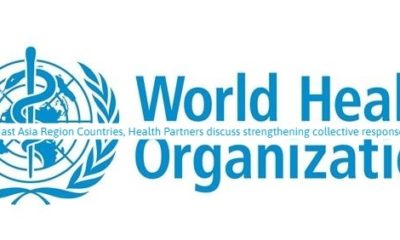Medical & Pharma
Lung Transplantation can help improve the quality of life for terminal lung disease patients

The Covid-19 pandemic has brought lung-related issues to the forefront as the virus primarily affects the lungs, however, India suffers from a massive burden of respiratory conditions. In the severe stage, these can lead to lung fibrosis or scarring of the lungs, due to which the lifespan and quality of life of the patient can be dramatically affected. Up to 15% of patients with Covid went on to develop moderate and up to 5% severe form of lung disease.
Many of them may end up having chronic lung diseases requiring continuous external oxygen support. In select patients with significant lung involvement, lung transplantation may be the only ray of hope. Lung transplantation is a procedure where a section or lobe of a lung, an entire lung, or both lungs are transplanted in a person who is suffering from severely diseased or failing lungs.
Over the last several years, lung transplantation has become the standard of care for people suffering from end-stage lung diseases and has been shown to add good quality of years to patients with no hope.
Lung transplantation is typically advised for people suffering from lung conditions that have advanced significantly or continue to progress rapidly despite optimal medical management. Such conditions would include COPD, Bronchiectasis, Interstitial Lung Disease, Severe Pulmonary Hypertension, cystic lung disease, etc. People with chronic lung disease have a progressive condition making them oxygen-dependent over time with limited mobility and poor quality of life.
These patients need greater attention and level of care by a dedicated team who are trained in managing these groups of patients. These patients also have poor appetite leading to nutritional depletion and need nutritional support by a dedicated dietician. Pulmonary rehabilitation helps and trains these people to maintain overall good health with mobility.
It is one of the most complex organ transplant surgeries, requires specialised expertise and adherence to proper selection protocol of the donor lung and evaluation of the patient’s health condition. Lung transplants are not for all patients and each patient must be evaluated on a case to case basis to determine whether or not a lung transplant is suitable for them. It is often provided as the last solution when other treatment measures such as medications or breathing devices do not work anymore.
Some unique cases also call for a heart-lung transplant, a rare procedure where both the patient’s heart and lungs have extensive irreversible damage and need to be replaced to improve their quality of life and survival. Lung transplantation procedures typically depend on the availability of deceased donor lungs. Finding the right match for organ transplantation surgery is of utmost importance for a successful surgery. Several factors such as blood type, size match, age, the health of the patient and other health conditions, tissue type, pulmonary function tests, etc must be taken into account before a patient is deemed to be suitable for lung transplantation.
The process of sourcing an organ itself is an elaborate process that involves multiple specialities and coordination between different centres and organisations. In the past year, not only has there been an increased need for lung transplants, but the organ donation facilitation process has also developed and become better, which has improved the scope of more needy patients receiving much-needed lung transplant surgery. Organ transplantation often gives a new lease of life to the patients who receive it and the noble act of organ donation, be it deceased or live is one that must be encouraged and supported.
Support from insurance companies and crowd-funding can help patients get access to much-needed lung transplants. Rejection of the donor organ is one of the biggest challenges and risks when it comes to any organ transplant surgery and it is the same case with lung transplants. Post lung transplantation, patients are required to be on lifelong immunosuppressive medications and need to take prophylaxis to prevent secondary infections. As the level of immunosuppression is gradually reduced, the risk of secondary infection also reduces.
Lung transplantation surgery in India is still in its early stages with very few medical facilities and trained doctors available to conduct this kind of surgery. A comprehensive team comprising of all specialities under one roof is the need of the hour to address the issues with these patients who are sick and have multiple associated co-morbidities.
For more information, please visit: https://www.asterbangalore.com/aster-rv-jp-nagar/
By Dr. Pavan Yadav, Consultant – Interventional Pulmonology, Sleep Medicine and Lung Transplantation, Aster Hospitals Bangalore









































